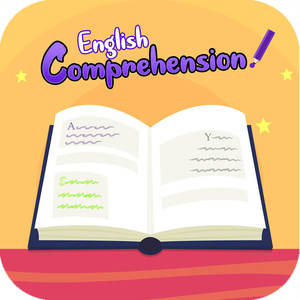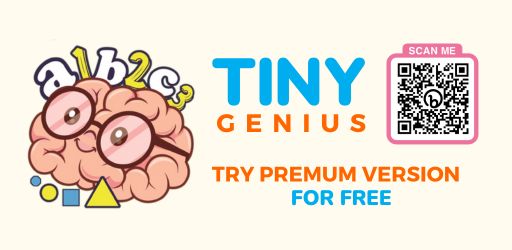Ebooks Versus Textbooks In The Classrooms
Today, technological advances are changing the conventional way of learning in schools. Most institutions have incorporated electronic devices in classrooms to help students get a personalized experience. Even though books are still used, the advent of smartphones and tablets enables students to read with ease and convenience. However, both books and electronic devices have advantages and disadvantages.
Some digital tools incorporate online learning, where students can share information. However, students may encounter writing challenges, and whether they decide to order essay writing online or complete an essay themselves while in class, their primary concern is to score better grades without pressure.
This article discusses various aspects of ebooks versus textbooks differentiate books and electronic devices in a modern classroom. Below are some of them.
Access to Latest Information
A school curriculum entails several subject disciplines that teachers must complete within a semester. With electronic devices, tutors can get access to the latest information instantly from online education platforms. The Internet is a pool of diverse information in real-time. Hence, whatever a student needs to know can happen within seconds. Electronic devices prove viable due to updated content, unlike a physical book that contains a fixed set of information. It is disadvantageous to schools using only books since the publishers must produce newer versions, spending more time and money.
Students can also take a personal initiative and research various online resources to get an in-depth understanding of the degree program they are pursuing. The online space gives one more opportunity to get a more personalized educational experience.
Adaptability
In this modern era, technology is a necessity that fuels industries and businesses. Hence, most students want to pursue a course that will give them a competitive edge after graduation. That is why more learning institutions are preparing learners to be tech-savvy to adapt to various situations. Using electronic devices in classes allows students to be confident and empowered to use technology in solving problems. Whether one is pursuing a Bachelors’s degree or Master’s degree, it is imperative to embrace online learning resources to broaden the knowledge from textbooks.
On the other hand, students learning with conventional books will not get technological exposure. They might find it challenging to integrate into a fully-fledged tech company unless they pursue computer courses on the side.
Cost-Effectiveness
As much as most students want to study online using electronic devices, not all of them can afford to purchase a tablet or a laptop. However, the contrast is that digital books are quite cheap compared to the expensive cost of books. Publishers often consider several factors before pricing a book, such as production cost. But an online author does not incur many expenses, and that is why e-books are far much cheaper.
Therefore, learning institutions are embracing technology by procuring e-books for learners. It might cut down extra costs for other commitments. Moreover, college tuition is already costly; thus, most students prefer to revise the learned material online rather than buying an expensive book.
Health Complications
Screens pose a significant health risk for long-term users. The eyes get used to the blue light, and students can start to experience eye-sight problems. Apart from that, students may not prioritize learning over the leisure use of devices. Smartphones contain numerous apps that can distract a student from concentrating in class. From social media sites to video games, it can lead to personality disorders in students. Thus, physical attendance in class is a much healthier practice for students without sizable health risks.
On the other hand, conventional books guarantee 100% concentration and high absorption of information since there are no distractions. No matter how complicated the subject discipline, books enable a student to learn in an uninterrupted manner.
Organization
Academic professionals ensure proper learning organization by classifying books according to course units and degree programs. When you visit a university library, all books are in chronological order. Factual accuracy is paramount in institutions using the conventional curricula to teach students.
On the contrary, the Internet is an open space with diverse knowledge, both from verified and unverified websites. It can compromise credibility and accuracy since students can easily get swayed with false information that does not align with the learning goals. Although electronic devices have the latest updates, it works better with governed regulations from the institutions. But it can be a challenging task to achieve organization because of the free reign on the Internet.
Weight
Over the years, students have been carrying the weight of physical books in backpacks. It also requires more storage space and maintenance to allow the books to last longer. However, one only requires an electronic device and a good Internet connection when it comes to ebooks versus textbooks
Tablets and smartphones have enough storage space that can store books, assignments, and other essential files. Thus, digital books are more portable and accessible, regardless of time and location.
Ultimately, digital books are taking over most learning institutions due to the growing demand for technology. It empowers students and makes learning more interactive and fun. That is why more students prefer to use electronic devices today to study and execute assignments. Researching using physical books is more tedious and boring since one has to open up several books to get relevant information. But e-books offer convenience and ease of research due to the numerous online sources.
However, learning is a continuous process that goes beyond the traditional classroom. Most students may prefer to use physical books due to the ease in reading and processing the information compared to digital books. Although electronic devices are convenient and portable, one may struggle to concentrate without the urge to visit social media websites. Thus, a textbook is still the most preferred mode of learning for homework tutoring.
With the dynamics of technology, learning institutions are embracing the convenience of electronic devices in a classroom. Depending on the school management, students can benefit from both books and electronic devices. As long as the goal is to gain information and improve the overall academic performance, both learning tools are viable and there is no debate about tablets vs textbooks and which one is better than the other one.

Improve your Child's Reading Comprehension Skills Through an App!
Reading Comprehension Fun Game helps parents and students improve reading skills and ability to answer questions. This English Reading Comprehension App has got the best stories for kids to read and answer related questions!









